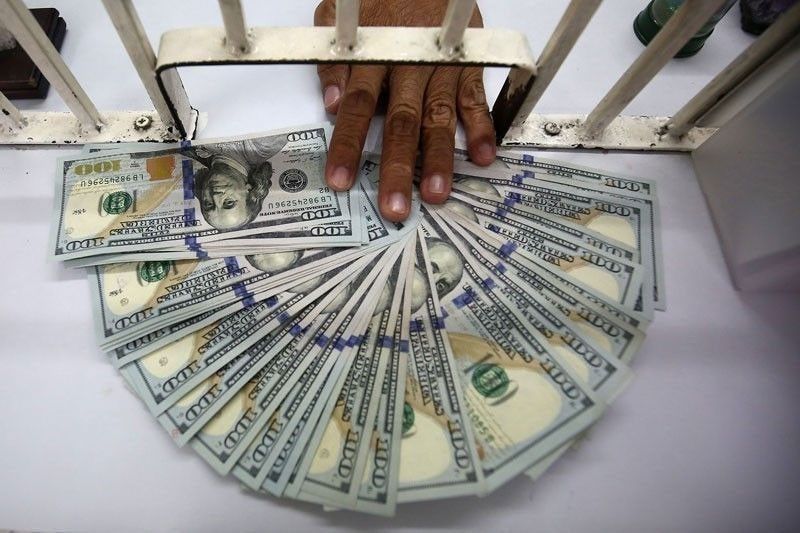Why the dollar is still strong


Despite the ongoing wars in Ukraine and Gaza, Fitch’s credit rating downgrade of the US, the lowering of the US credit rating outlook to negative by Moody’s and a growing US debt burden, the US dollar has regained its strength. After declining to its recent low of 100.62 in December last year, the US dollar index (DXY) is now at 104.29.
Reasons behind the dollar’s continued strength
US interest rates still high. Despite prospective rate cuts this year, US interest rates are still at the highs after the Federal Reserve’s (Fed) unprecedented monetary tightening.
Recent economic data. Nonfarm payrolls increased by 303,000 in March while the unemployment rate dropped to 3.8 percent. These signify that the US economy remains strong.
US inflation is going down. Inflation has gone down from a high of 9.1 percent in June 2022 to 3.2 percent in February 2024 even as the US economy continues to perform well. A growing economy with declining inflation is an ideal place for investments, thus giving reason for the dollar to strengthen.
Recession in major economies. Germany, the UK and Japan experienced recession. In contrast, the US economy grew by 2.5 percent in 2023, outpacing most major economies. Moody’s chief economist Mark Zandi said, “The US economy is leading the way for the global economy. It’s driving the global economic train.”
Fed officials talk down rate cuts. The strong US economy has given the Fed leeway to push back rate cuts as it waits for inflation to return to its two percent target. Last week, Fed officials talked down the possibility of rate cuts, hinting at later or fewer rate cuts.
Prospective rate cuts by some global central banks. Countries that are experiencing slower economic growth than the US are contemplating rate cuts. The Swiss National Bank (SNB) was the first major central bank to cut rates and others may follow suit and cut rates ahead of the Fed.
Interest rate differential still wide. The US has a wide interest differential with countries such as Japan which is coming from a negative interest rate regime. The Japanese yen reached a 34-year low against the US dollar, sparking talks of intervention from the Bank of Japan (BOJ).
Synchronized rate cuts. There is an increasing likelihood of synchronized rate cuts by major global central banks. With many central banks cutting rates together with the US, the US dollar retains its attractiveness.
US exceptionalism. Many asset managers and investors believe in US exceptionalism. American exceptionalism is the belief that the US is distinctive, unique, superior and exemplary compared to other nations. Thus, they continue to believe in the strong US dollar.
Consumption-driven economy. The US economy is driven by domestic consumption. It therefore benefits from a strong US dollar which effectively lowers the prices of imported goods.
China slowdown. China’s economy is slowing down, hampered by a deep property crisis, slow consumption growth, and deflation.
US-China cold war. The tariffs, trade conflict and hostile rhetoric between the US and China have caused investors to sell Chinese assets, thereby undermining China and the yuan.
Technological breakthroughs and advancements. The US has been the leader in technological advancements and innovation, as seen in the development of the internet, smartphones, cloud and now AI.
Imposing tariffs and restricting exports. The US government asked ASML and Nvidia to stop exporting some sensitive chips to China. During his term, Trump imposed wide-ranging tariffs on China which were continued by the Biden administration. If he gets reelected, Trump wants to further increase the tariffs on China to 60 percent.
The power to freeze financial assets of other countries. Through its financial clout, the US has the power to freeze the financial assets of enemy countries. The US and its allies were able to freeze about $300b in Russian financial assets after Russia invaded Ukraine.
War in Ukraine. The war in Ukraine illustrates the military power of the US. Though the US is not directly involved in the military conflict, it is able to provide weapons, financial assistance and NATO backing to Ukraine.
Israel-Hamas conflict. Many countries are affected by the wars in the Middle East because of their impact on crude oil prices. Any escalation of the conflicts in the Middle East will drive the US dollar higher.
US is net exporter of crude oil. With the advancements in shale oil production, the US has become a net exporter of crude oil. This mitigates the effect of oil price volatility on the US economy. Europe, Japan and many other countries are more susceptible to price hikes and supply disruptions.
One of the strongest US bull markets in history. The tech and AI-powered bull market is one of the strongest bull markets in history. The S&P 500 is up 27 percent from its October low and is up nine percent year-to-date.
Deep and liquid financial markets. The US has the biggest, deepest, most transparent and most liquid financial markets across all asset classes including stocks, bonds, currencies and commodities.
Primary reserve currency. Despite efforts by other countries to diversify their reserves, the US dollar is still the primary reserve currency used by global central banks.
Military might. The US is the strongest military superpower in the world. The military might of the US translates to economic power, and this makes the US the strongest country in the world.
Safe haven status. In times of uncertainty, fear, wars, or geopolitical conflicts, the US dollar functions as the ultimate safe haven asset.
The combination of the factors above makes the US dollar the strongest currency in the world.
Philequity Management is the fund manager of the leading mutual funds in the Philippines. Visit www.philequity.net to learn more about Philequity’s managed funds or to view previous articles. For inquiries or to send feedback, please call (02) 8250-8700 or email ask@philequity.net.
- Latest
- Trending
































